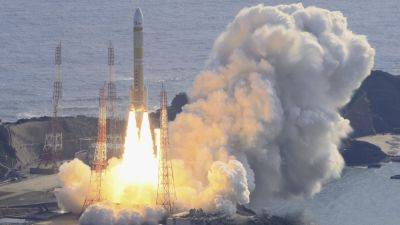Japan PM Kishida is fighting a party corruption scandal. Here’s a look at what it’s about
TOKYO (AP) — Japanese Prime Minister Fumio Kishida on Monday was forced to start this year’s parliamentary session with an apology over one of the country’s biggest corruption scandals in decades.
Prosecutors recently indicted 10 people, including three lawmakers and a number of political aides, in the latest hit to Kishida’s already unpopular Cabinet.
Kishida in December removed people linked to the scandal from his Cabinet and key party posts, but his government’s support ratings have dropped to around 20%.
The AP explains the scandal and what it means to Kishida’s government and Japan.
WHAT IS THE SCANDAL ABOUT?
The scandal centers on political funds raised through party event tickets bought by individuals, companies and organizations. Dozens of lawmakers in Kishida’s Liberal Democratic Party are alleged to have pocketed profits from ticket sales as kickbacks by falsifying mandatory accounting reports.
Last year a number of LDP lawmakers, mostly members of a faction previously led by assassinated former Prime Minister Shinzo Abe, were accused of systematically not reporting hundreds of millions of yen (millions of dollars) in funds, in violation of the Political Funds Control Law. The money was alleged to have gone into unmonitored slush funds.
Governing lawmakers say proceeds from fundraising events provide key income to help cover election costs and other political activities, and deny they hid or pocketed unreported income. But experts say the Political Funds Control Law has many loopholes.
The law bans donations to individual lawmakers, but political factions can raise money through ticket sales at fundraising events and redistribute it to member lawmakers as long as the transaction is reported. Under the law, only




